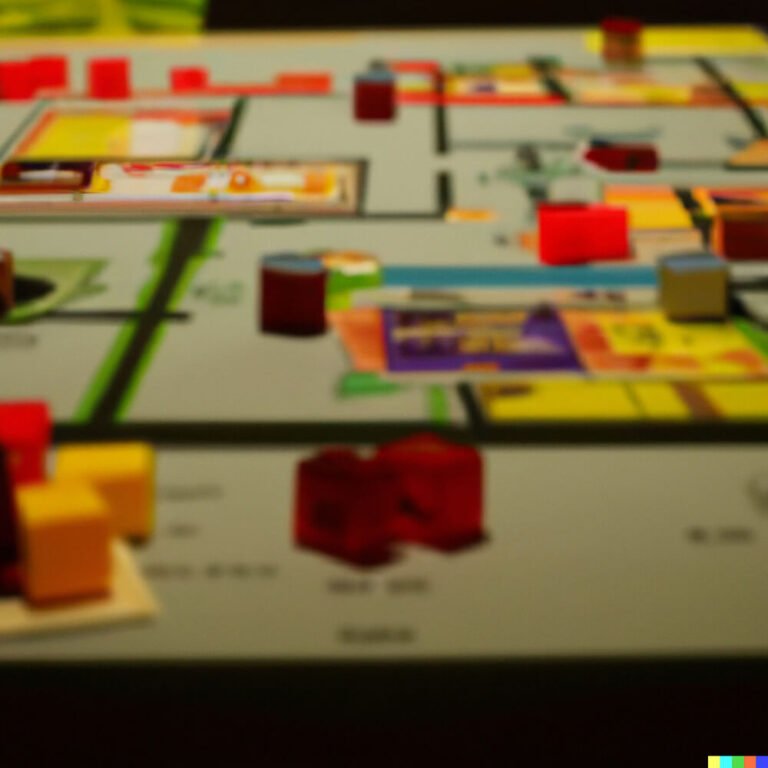Are you a fan of classic diplomacy board games? If so, you’re in for a treat. In this article, we’ll dive into the world of Classical Diplomacy Board Game and explore its rich history, gameplay, strategies, and community. From its origins to its lasting impact on modern strategy games, we’ll cover everything you need to know about this beloved game.
The Classical Diplomacy Board Game has been a staple in the world of board games for decades. With its roots dating back to the early 1950s, it has captivated players with its intricate gameplay and strategic depth. As one of the most iconic diplomacy board games in history, it has earned a devoted following and continues to be a popular choice for gaming enthusiasts worldwide.
From understanding the rules and setup to mastering complex strategies, Classical Diplomacy Board Game offers a unique experience that sets it apart from other board games. Whether you’re new to the game or a seasoned player looking to hone your skills, there’s always something new to learn and explore within the world of classical diplomacy. So, let’s embark on this journey together as we delve into the fascinating world of Classical Diplomacy Board Game.
How to Play Classical Diplomacy Board Game
The classic Diplomacy board game is a strategic and immersive game that has captivated players for decades. The game, which takes place in Europe before World War I, requires careful planning and negotiation with other players to succeed. If you’re new to the game or looking for a refresher on the rules and gameplay, this step-by-step guide will help you get started.
To begin playing the classic Diplomacy board game, you’ll need the following:
- A standard Diplomacy board featuring a map of Europe divided into several territories
- Six different colored sets of army and fleet pieces representing the major powers of the time: Austria-Hungary, England, France, Germany, Italy, Russia, and Turkey
- Rulebook outlining the specific rules for movement, support orders, and negotiations between players
- Pen and paper to keep track of negotiations and orders during each turn
Once you have all the necessary materials ready, follow these steps to set up the game:
- Place all units on their respective starting locations according to the setup in the rulebook.
- Assign one player to each of the seven major powers.
- Establish diplomatic relationships with other players before beginning the first turn.
The gameplay of Diplomacy unfolds over several phases: Spring Orders, Fall Orders, Retreats (if necessary), Build (if applicable), followed by another round of negotiations. The key to success in this phase-driven wargame is through strategic movement across territories while forming alliances with other players for mutual benefit.
As you navigate through these rules and strategies with fellow players in each round, remember that communication is crucial in this game. The negotiation process involves discussing potential alliances or backstabbing schemes with other players – it’s an essential element that adds depth to Diplomacy’s gameplay as well as its distinct appeal among strategy gaming enthusiasts worldwide.
Strategy Tips and Tricks
Playing the classic diplomacy board game requires more than just luck; it involves strategic thinking, careful planning, and skilled negotiation. Here are some tips and tricks to help you navigate the treacherous waters of diplomatic intrigue and secure victory on the board.
Establish Alliances
One of the key elements of success in the classic diplomacy board game is forming alliances with other players. By working together with other nations, you can increase your chances of successfully navigating the board and achieving your strategic goals. However, it’s important to remember that alliances are not permanent, and betrayal is always a possibility. Be selective about who you trust and be prepared to switch allegiances when necessary.
Negotiate Effectively
Effective negotiation is crucial in the classic diplomacy board game. Whether it’s making deals with other players or persuading them to support your moves on the board, strong communication skills are essential. Be persuasive, but also be cautious not to reveal too much information or make promises that you cannot keep. Diplomacy is a delicate balance between honesty and deception, so choose your words carefully.
Adapt Your Strategy
Flexibility is key when playing the classic diplomacy board game. As situations change on the board and alliances shift, it’s important to adapt your strategy accordingly. The ability to think quickly on your feet and adjust your plans as needed will greatly increase your chances of success in this dynamic and challenging game.
By keeping these strategy tips in mind, you’ll be better equipped to navigate the world of classical diplomacy and outwit your opponents on the board. Mastering the art of negotiation, forming strategic alliances, and adapting your plans will put you on the path to victory in this timeless game of diplomacy and cunning strategy.
Notable Diplomacy Board Game Tournaments and Events
Classical Diplomacy board game enthusiasts have the opportunity to showcase their skills and strategic prowess in various tournaments and events dedicated to the game. These gatherings bring together players from around the world to compete, collaborate, and celebrate their love for this classic board game. Here are some notable diplomacy board game tournaments and events that have become fixtures in the global gaming community:
1. World Diplomacy Championships: The World Diplomacy Championships is a prestigious event that attracts top Diplomacy players from different countries. Organized by the Diplomatic Pouch website, the championship is held every few years at a different location around the world. Players compete in intense rounds of gameplay, vying for the title of world champion and showcasing their mastery of strategy and negotiation.
2. Virtual Diplomacy Summit: With the rising popularity of online gaming, the Virtual Diplomacy Summit has emerged as a significant event for players looking to compete in digital arenas. This global summit allows participants to engage in competitive gameplay through online platforms, bringing together a diverse community of players who share a passion for classical diplomacy board game.
3. National Diplomacy Gatherings: Many countries hold their own national-level diplomacy gatherings, where local enthusiasts can come together to compete and bond over their shared love for the game. These events often feature both friendly matches and official tournaments, providing players with an opportunity to test their skills against fellow diplomats within their own communities.
Participating in these tournaments not only allows players to demonstrate their expertise in classical diplomacy but also fosters a sense of camaraderie among enthusiasts who are passionate about this timeless strategy game. These events serve as valuable opportunities for individuals to connect with like-minded peers and celebrate their mutual appreciation for classic diplomacy board game.
The Legacy of Classical Diplomacy Board Game
The classic Diplomacy board game has had a lasting impact on modern strategy games and has left its mark on the gaming community as a whole. Since its creation in the 1950s, Diplomacy has served as a template for numerous other strategy games, both board and digital. Its unique combination of negotiation, alliance-building, and strategic warfare has provided inspiration for designers seeking to create complex and immersive gaming experiences.
Influence on Modern Strategy Games
Many modern strategy board games owe a debt to Diplomacy. The game’s focus on player interaction, negotiation, and betrayal has been emulated in titles such as Risk, Game of Thrones: The Board Game, and Twilight Struggle. These games also often incorporate elements of diplomacy and backstabbing that are hallmarks of the classic Diplomacy board game.
Impact on the Gaming Community
The legacy of Diplomacy can also be seen in the gaming community at large. The game’s emphasis on communication and negotiation has influenced how gamers approach multiplayer experiences as a whole. Whether playing a tabletop board game or an online video game, players have adopted strategies derived from the world of Diplomacy when engaging with their opponents. This enduring impact speaks to the lasting influence of the classic diplomacy board game beyond its own specific gameplay mechanics.
Classic Diplomacy Board Game Variants
The Classic Diplomacy Board Game has inspired a number of variants and spin-offs, each with its own unique set of rules and gameplay. One of the most well-known variants is “Diplomacy: War by Other Means,” which introduces new elements such as espionage, sabotage, and economic warfare to the game. This variant adds a layer of complexity to the original game, providing players with more strategic options and ways to outmaneuver their opponents.
Another popular variant is “Modern Diplomacy,” which updates the classic game to reflect contemporary geopolitics. This version includes modern-day nations, alliances, and conflicts, allowing players to simulate real-world scenarios in their diplomatic negotiations and military maneuvers. The addition of current events and global issues makes Modern Diplomacy a more immersive experience for players who are interested in world affairs.
In addition to these major variants, there are numerous fan-created spin-offs that cater to different themes and historical periods. These include medieval diplomacy, space diplomacy, and even fantasy diplomacy. Each variant brings its own twist to the original game mechanics while still preserving the core principles of negotiation, strategy, and betrayal.
Overall, these variants and spin-offs add new dimensions to the Classic Diplomacy Board Game, appealing to both traditionalists who enjoy the original gameplay as well as those seeking fresh challenges and thematic variations.
| Variant Name | Description |
|---|---|
| Diplomacy: War by Other Means | Introduces espionage, sabotage, and economic warfare |
| Modern Diplomacy | Reflects contemporary geopolitics with modern-day nations |
| Fan-Created Spin-Offs | Caters to different themes like medieval diplomacy or space diplomacy |
Diplomacy Board Game Community
The Diplomacy board game has a strong and dedicated community of players, fans, and enthusiasts who have kept the game alive for decades. Comprised of people from all walks of life, this community is passionate about the classic diplomacy board game and its complex gameplay. Whether through in-person meetups or online forums, the Diplomacy board game community provides a space for players to connect, share strategies, and participate in friendly competition.
Online presence plays a significant role in the Diplomacy board game community. There are various platforms where players can engage with others who share their passion for the game. Dedicated websites, social media groups, and online gaming platforms provide opportunities for players to find opponents, discuss strategies, and even participate in virtual tournaments. The wide-reaching nature of these platforms allows diplomacy enthusiasts from around the world to connect and interact with one another.
For many fans of the classical diplomacy board game, being part of a like-minded community is an essential aspect of their enjoyment of the game. The camaraderie that comes from engaging with others who share their enthusiasm for strategy games is a source of connection and mutual support within the community. Players often forge lasting friendships through their involvement in local gaming groups or virtual communities centered around Diplomacy.
| Diplomacy Community Platforms | Description |
|---|---|
| Official Diplomacy Board Game Forums | An online space provided by the creators of the game where players can engage in discussions, find opponents, and learn about upcoming events. |
| Facebook Groups | A collection of groups specifically dedicated to Diplomacy players, allowing members to connect with each other based on location or play style. |
| Online Gaming Platforms | Platforms such as Steam or PlayDiplomacy.com offer opportunities for virtual play against opponents from around the world. |
Final Thoughts
In conclusion, the classical diplomacy board game holds a special place in the world of board games due to its rich history, strategic gameplay, and enduring popularity. The game’s origins date back to the early 20th century, and it has since become a classic among strategy enthusiasts.
Its appeal lies in the intense diplomatic maneuvering, complex alliances, and betrayal tactics that players must employ to outwit their opponents on the board. This level of depth and intrigue has cemented its status as a beloved classic in the gaming world.
Despite the rise of modern digital games, the classical diplomacy board game continues to attract dedicated players and enthusiasts. Its timeless gameplay mechanics and emphasis on negotiation and strategy have kept it relevant through the years. Additionally, with the advent of online platforms and communities, the game has found a new audience and continues to thrive in various tournaments and events around the world.
As we look to the future, it is clear that the legacy of the classical diplomacy board game will endure for generations to come. Its influence on modern strategy games is evident, and its impact on the gaming community is undeniable. Whether played in its original form or one of its many variants, this iconic game will continue to captivate players with its intricate gameplay and diplomatic challenges for years to come.
Frequently Asked Questions
Is Diplomacy Board Game Good?
Diplomacy Board Game is considered a classic and highly respected game in the board gaming community. It is known for its deep strategy, negotiation, and player interaction. Many players find the game to be an intense and satisfying experience, but it may not be suitable for those who prefer quick and light games.
What Board Games Are Based on Diplomacy?
There are no other board games based directly on Diplomacy, as it is a unique game in its own right. However, there are several other board games that share similar features such as negotiation, alliances, and global strategy. Some examples include Risk, Game of Thrones: The Board Game, and Twilight Struggle.
Which Edition of Diplomacy Is the Best?
The best edition of Diplomacy is often a matter of personal preference. The standard edition published by Avalon Hill is the most widely known and played version.
However, there are other editions with different artwork, component quality, or minor rule tweaks that some players may prefer. Ultimately, the best edition for someone will depend on their specific preferences and priorities when it comes to board game components and design.

I love playing all kinds of games – from classics like Monopoly to modern favourites like Ticket to Ride.
I created this blog as a way to share my love of board games with others, and provide information on the latest releases and news in the industry.





